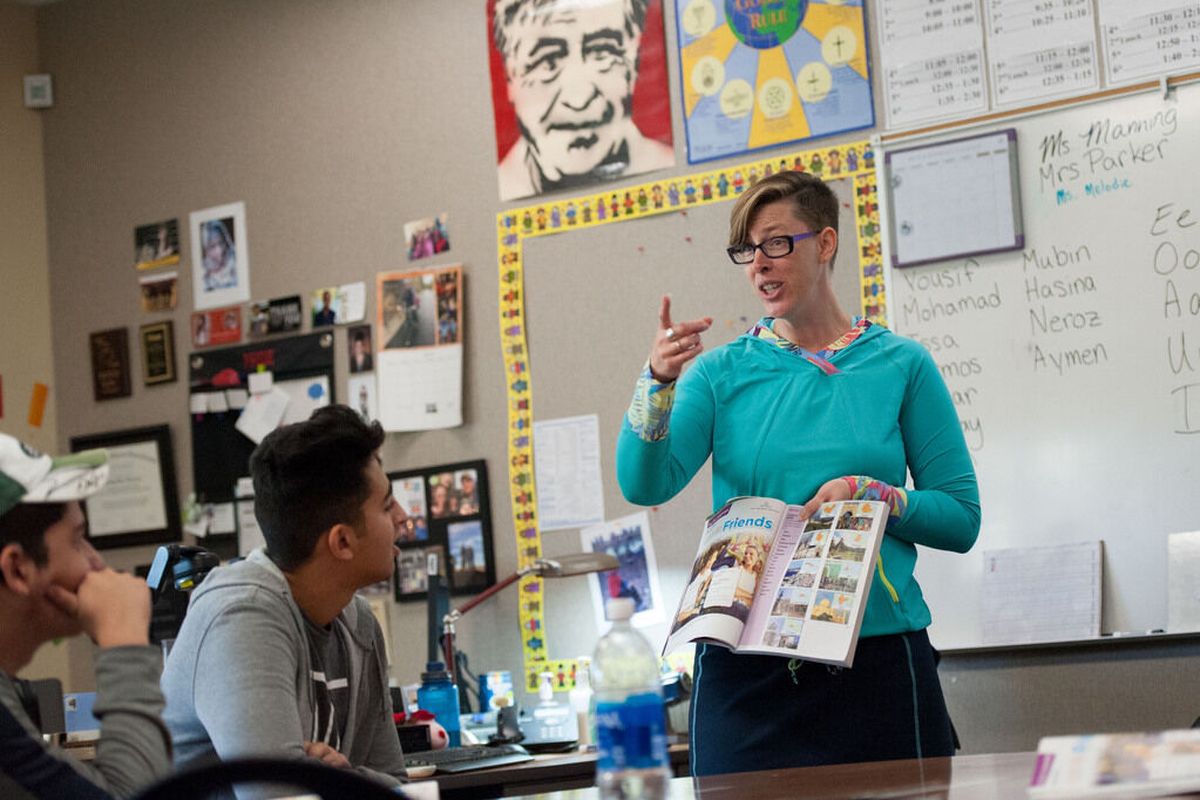Northwest Passages Book Club features Sabina Khan, Mandy Manning discussing immigration, importance of diversity

Young adult fiction author Sabina Khan discussed her novel, “Zara Hossain Is Here,” in a virtual gathering of the Northwest Passages Book Club hosted by Mandy Manning, Washington’s 2018 National Teacher of the Year, at 7 p.m. Monday.
For Zara Hossain, growing up bisexual in Corpus Christi, Texas, as a Pakistani immigrant hasn’t been easy. She came to the U.S. with her family as an infant, but, to some of her classmates at the conservative Catholic high school she attends, she’ll never belong. As her family’s visa finalization process drags on and the racist acts of her peers start to escalate Zara’s situation becomes even more tenuous.
Manning, honored for her work with refugee students at the Newcomer Center, asked Khan about the book’s origins and her passion for raising awareness of the obstacles faced by immigrants – especially Muslim teenagers – who find themselves living in and between cultures.
Manning shared some of her experiences teaching young people like Zara.
“I just thought about all of the students who came through my classroom and the experiences they had … beginning to build their homes here,” Manning said, explaining how she has been able to keep in touch and follow their progress over the years.
“Diversity in young adult literature is so important … and this book would have been incredible for them to read.”
Many immigrants, Khan said, still struggle to find representative literature.
“I was 26 before I saw a book with characters like me,” Khan said. “And I remember very clearly, at this moment, the world opened up to me … as I realized that people wanted to hear our stories.”
Khan hopes that her young readers will gain a similar sense of hope reading about themselves.
“It makes me so happy now that you see more and more (of these) books,” Khan said. “We have a long way to go, but still, it’s a start. It’s very heartening.”
Manning noted the central themes of the book: acceptance, and conversely, “un-belonging.”
The relationship between Zara, a teenager growing up having only ever called the U.S. home, and her parents, who immigrated as adults, is one that Khan is intimately familiar.
“I came to the U.S. as a 26-year-old,” Khan said, explaining how she first lived in Germany, then Bangladesh before moving to the U.S. with her husband and starting a family. “My kids grew up here. We’ve adapted. But for them, this is home.”
Likewise, to Zara’s parents, Khan said, moving back to Pakistan seems like an option. But to Zara, it’s unthinkable.
Manning next asked about the way Khan was able to approach languages, integrating elements of Urdu – the language Zara speaks at home – into the text.
Khan, who speaks Hindu, Bengali, Erdu, English and German – explained that moving between languages in her writing comes naturally because her family has always been multilingual.
“Our conversations are peppered with Urdu expressions,” she said, explaining how some things can only ever be said in one’s “mother tongue.”
Manning asked what advice Khan could offer to teachers trying to combat ethnocentrism inside and outside the classroom.
Some people will never stop seeing immigrants as outsiders, Khan said. But in her experience, the benefits of introducing children to a range of lifestyles and different ways of interacting are immeasurable.
“Zara Hossain is Here” is available at Wishing Tree Books and Auntie’s Bookstore.